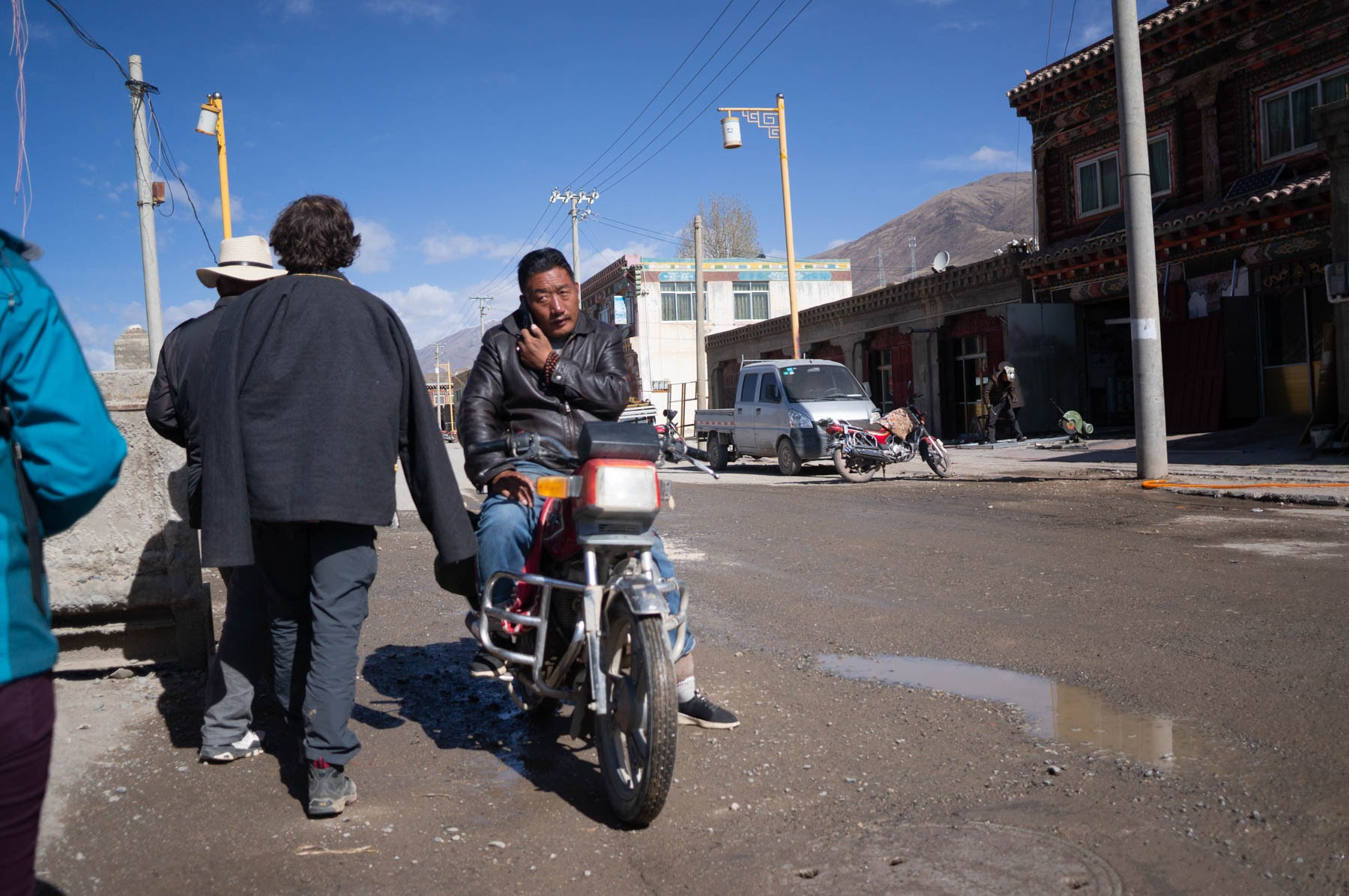Orality Platform
Our Solution
When it comes to Biblical content, many missionary teams face a distribution problem. We developed Orality Platform (OP) to partner with these teams in providing an adaptable and audio-driven solution for unreached language groups.

For several years on the field, Caleb managed a resource center in a closed country. It housed thousands of printed books and materials. Sadly, the majority of these resources remained on the shelves gathering dust.
A Common Need
We’ve found that the problem for missionary teams is usually not content production, but rather content distribution. Furthermore, the reality that many ethnolinguistic groups are oral preference learners means that the solution ought to be audio-driven.
A common need exists in many ministry contexts: simple, clear, and culturally appropriate ways for people to access scriptural content.
One For All
Orality Platform
Our solution began to take shape as a concept in 2019 and 2020 as
we were researching digital distribution needs and building
prototype apps. We didn’t find existing solutions, mobile apps or
otherwise, to be adequate (though some
fantastic solutions
already exist for
text-heavy content
). So in 2021 we began a more concentrated effort to build
Orality Platform: a shared codebase from which multiple
language-specific apps can be spun up.
It's like using the same recipe to make different dishes. The shared codebase is our recipe, and each app is a unique dish we create from it.
Key Features
Clean Interface
Our interface is easy to use and navigate.
Audio-Based Navigation
When navigating content, users can press a button to hear the title of each story or chapter.
Listen Anywhere
Users can download and listen to audio files offline, wherever they are.
Multilingual Support
Users can switch languages for audio and/or text.
Audio, Text, and Image
OP supports any combination of audio, text, and image.
Customizable
Teams can choose which features they want in order to suit the needs of their language group.

Our Process
From Idea to Reality
Case Study
A missionary team approached Upstream with a problem. The ethnic group they serve is severely oppressed and is now scattered around in various countries—often in refugee camps that are not always easy to access. There are at least four different scripts being used to write their language. To top it all off, hardly any locals read their own language.
The missionary team had completed an audio overview of the Bible. They selected a range of texts, carefully crafted and tested an oral telling of them, and recorded them. Though their content could be distributed on SD cards, the experience would be very clunky and irritating. Especially since the user would be required to read the title of each mp3 file.
Through volunteers and interns with Upstream, we produced a simple audio player app for this missionary team. It plays the content, plays the story titles (for navigation purposes), and can display the story titles in all four scripts. It also links users directly to the team’s WhatsApp account.
The ethnic group now has access to an audio overview of the Bible! They downloaded our app through Google Play or the App Store. They were also able to download it through SD cards, where it was a more frictionless experience compared to mp3 files. Ultimately, accessing the content through the app allowed for a richer and more seamless way to engage with Scripture.
The app has reached over 1,000 downloads. Though we’re still thinking and learning about ways the app can be improved, we praise God that it is being used by missionaries, local Christians, and non-Christians alike.

Technologists
Build for the Unreached
Discover how you can code and design for the unreached. Join our community to learn and contribute to church planting efforts.
ServeMissionaries
Empower Your Mission
Begin a conversation with us to explore whether our tailored apps can empower your mission.
Partner